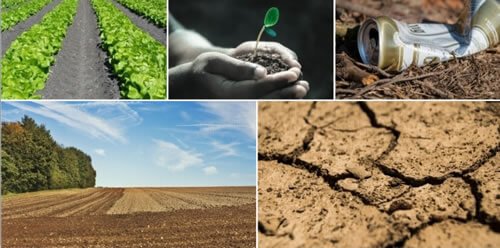A mixed peasant is more self-sufficient than a specialized one. Thus, unlike the aviculturist and the pig breeder, he uses the manure: he throws it to the ground.
Soil care is the cornerstone of organic farming. Microorganisms and subterranean animals improve soil structure, release nutrients for plants and, according to some, fight certain diseases. To keep them active, the farmer provides them with organic fertilizer and cultivates with care to keep them in the top 10 or 20 cm of the soil, where most of the fertilization work is done. Deep-rooted herb crops rise to the various nutrient surfaces from the lower levels of the soil. They provide nutritious food to the cattle and improve the structure of the soil. When plowing, they give a lot of organic matter. If they are sustained for 5 years, they can produce enough organic material to then grow three cereal crops without adding chemical fertilizers.
Organic crops tend to obtain lower yields than those that use chemical fertilizers, and some organic farmers buy manure outside to increase their productivity. Plowing crops favor the growth of weeds, and refusing to treat them with chemical herbicides prevents the adoption of crop rotation with a predominance of crops of this type, which is another cause of relatively low production.

Sort: Trending